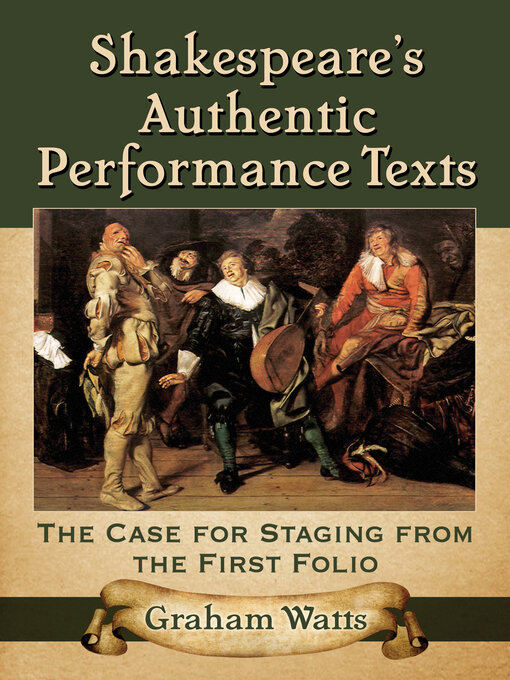When we pick up a copy of a Shakespeare play, we assume that we hold in our hands an original record of his writing. We don't. Present-day printings are an editor's often subjective version of the script. Around 25 percent of any Shakespeare play will have been altered, and this creates an enormous amount of confusion. The only authentic edition of Shakespeare's works is the First Folio, published by his friends and colleagues in 1623.
This volume makes the case for printing and staging the plays as set in the First Folio, which preserved actor cues that helped players understand and perform their roles. The practices of modern editors are critiqued. Also included are sections on analyzing and acting the text, how a complex character can be created using the First Folio, and a director's approach to rehearsing Shakespeare with various exercises for both professional and student actors. In conclusion, all of the findings are applied to Measure for Measure.

